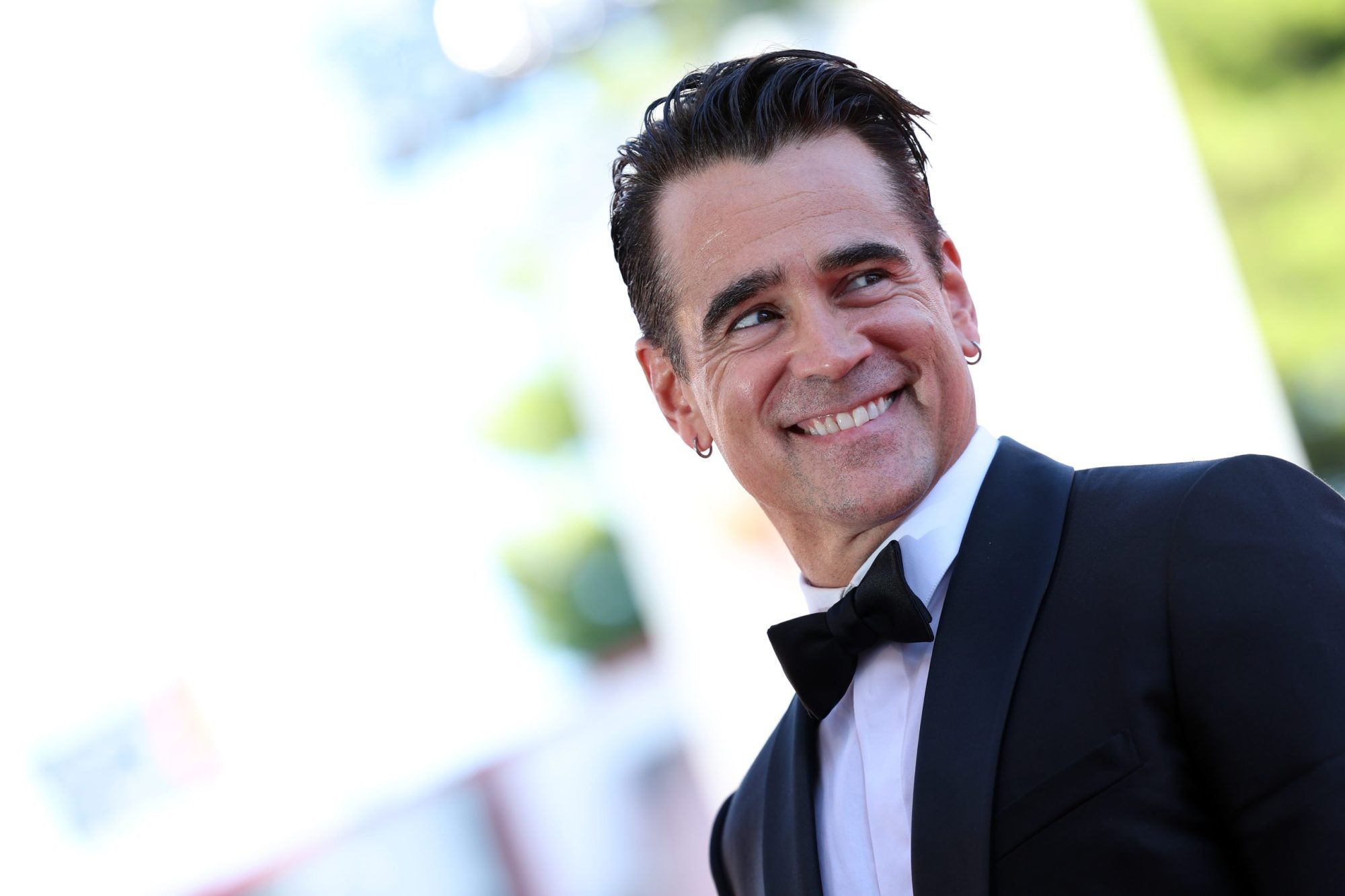
- Festivals
80th Golden Globe Awards [2023] Ceremony (18837), Venice 2022: Colin Farrell on Life, Death, Friendship and Cancel Culture
When his Banshees of Inisherin co-star Brendan Gleeson reminds him that it has been fourteen years since they last worked together for Martin McDonagh in the Golden Globe-winning In Bruges, Colin Farrell takes in the moment.
“It’s mad. It’s just like, man, my mortality is knocking on my door when I think of that one.”
Luckily the Castleknock, Ireland native still has more than a few good years left in him and always knew he would like to spend some of those precious moments working again with his director.
“Martin and I had a very mature agreement that was inspired by his initial thought of if he ever writes something that I wasn’t right for, I should be okay with it,” the actor told the HFPA during the official Venice Film Festival press conference. “If he ever offers me something that I don’t want to do, which is the second part we’ve already proven is less likely than the first, it’s okay for me to pass. I can’t imagine ever passing on anything that he writes because he’s such an extraordinary writer. I am always so, apart from invigorated, apart from moved to laughter, I’m always so deeply moved just emotionally and psychologically by the worlds that he creates and the characters that he designs.”
In Banshees of Inisherin Farrell plays Pádraic Súilleabháin, a simple man whose daily life is filled with a few unassuming routines, none more enjoyable than going to the pub with his best mate Colm Doherty (Gleeson). One day, that custom gets interrupted when Colm announces he doesn’t want to be friends anymore and sends his younger acquaintance into a tailspin. Through the comedic yet poignant narrative framed by McDonagh (Three Billboards Outside Ebbing, Missouri), the film peels back the layers of life to this island community who depend on each other as much as the air they breathe.
“Not many people walk through cemeteries with such glee as Padraic does at the start of the film,” Farrell explains about his character’s disposition. Admittedly unsure ff the man is connected or delusional, he still stands in awe of how the man lives a beautiful life. “That beauty is taken away from him by Brendan’s Colm. I was shocked when I saw the film because I was fighting my corner, of course, as you do when we were making the film. But then when I saw the film, I had a deep sympathy for the struggle and the consequences of his actions.”
One of the marveling aspects of the story is the lost art of conversation, as the two protagonists struggle over the need to sit across from each other and just talk. In an era where a whole generation derives their social connection via TikTok, Instagram, or even texts, Farrell understands the dilemma.
“Even those that are living in a sense of saturation by the information age and how quickly we can access sound bites and blurbs and all this kind of stuff on social media, it takes us away from the intimacy that’s required and the interests that are needed to exist before you can launch into a conversation with someone,” he preaches, acknowledging that when push comes to shove, we, as people, always return to good chats.
But the road to redemption on that can be fraught with a reckoning. “It’s like a lot of people don’t believe in God until they’ve overdosed on a drug, and then they’re on their knees going, “Please, God, I’ll never do it again, if you just get me out of this one jam,” he continues. “Conversation, sharing thoughts and feelings with each other. It’s a world that is so quick to pull the trigger of judgment on each other. We’re so quick to cancel now with cancel culture and all these kinds of things that to actually have discourse, to have a conversation, to exchange ideas in a way that’s as open to your opinion being changed as it is to your opinion being shared.”
He stops again to take that in.
“That’s a gorgeous thing. I don’t think that’ll ever die, even if it has been supplanted a little bit by technology and what it offers us.”